#Ascension Day
Text
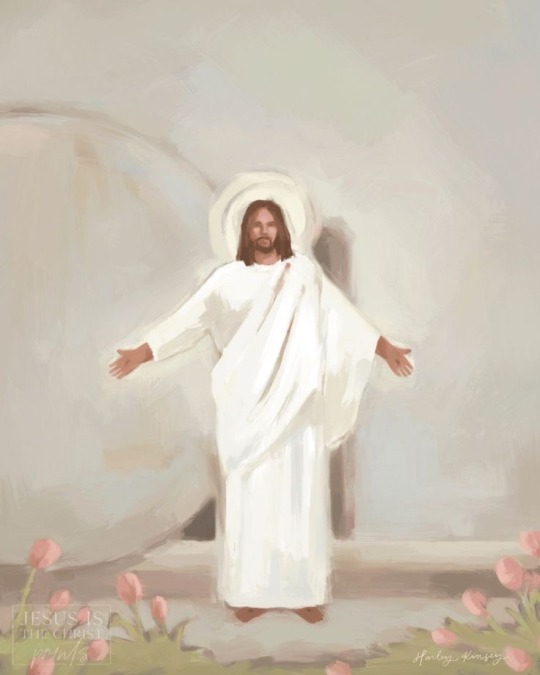





I came from the father and have come into the world, and now I am leaving the world and going to the father.
John 16:28
#ascension#feast of the ascension#Catholic#orthodox#liturgy#religious imagery#religious art#Jesus#Easter#lent#resurrection#god#bible quote#bible verse#aesthetic#light moodboard#moodboard#pinterest#inspiration#quotes#philosophy#art#Pentecost#christ is risen#Christian#ascension day#mothers day
29 notes
·
View notes
Text
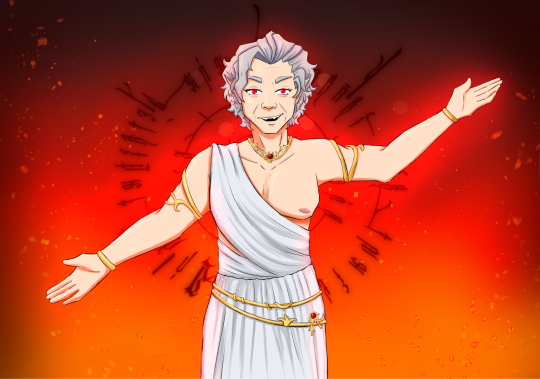
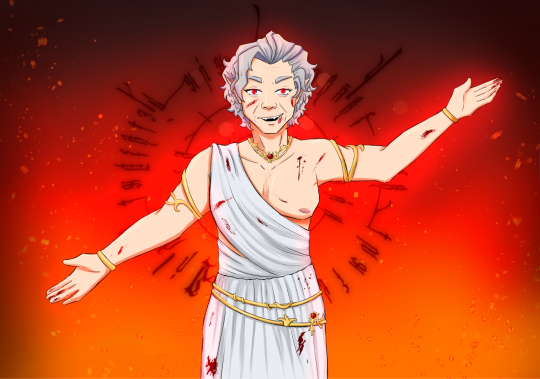
Happy Ascension day ⬆️
#astarion#bg3#baldur's gate 3#bg3 astarion#astarion ancunin#ascended astarion#baldur's gate 3 astarion#ascension day#i apologize for my dumb joke but also sorry not sorry#my art
21 notes
·
View notes
Text
So, I have been playing dota 2 for the last 11 years and...
There's this piece of lore between two characters, Skywrath Mage and Vengeful Spirit that has always fascinated me because the ANGST is... unmatched.

I'll just leave this here:

and this one too:

So, they basically knew each other before the whole coup, he had feelings for her, but he couldn't save her when everything happened because he wasn't aware of her sister's plans. And now, there's nothing he can do because his powers are sealed to the queen he serves.
FEEL THE ANGST.
There's also lines that can be triggered during certain events on the game, like meeting an ally or killing an hero, but most important of all, it's very interesting way to understand the relationship between 2 characters. These are Vengeful Spirit lines when killing Dragonus:

Like... She hates him. She truly believes he knew about the coup and didn't do anything to help her, when in reality, he truly didn't know.
His lines, on the other hand:


In other words: BOY IS A SIMP. Simple as that.
I started to play dota 2 in 2013 and, as a good fangirl that I am, of course these two picked my interest because LOOK AT THIS. So tragic. So much potential.
And then, in the year of our Lord 2024, Valve decided to launch a game event with items, game modes, blabla, AND A COMIC that basically continues Venge and Sky story. Link is here: https://www.dota2.com/crownfall/comic
Super cool. But the best part comes now:



Yeah.
THEY'VE BEEN TOGETHER ALL THIS TIME. I REPEAT, THEY'VE BEEN TOGETHER ALL THIS TIME.
OMG I WON SO MUCH TODAY, GUYS. I'm sure no one cares about Dota 2 lore but I just needed to share with the world HOW MUCH I WON TODAY.
(Why all the hate lines for him? I don't know, maybe Dragonus managed to talk to Shendel along the way and they have been together since then? Maybe she's faking because she doesn't want her sister to kill her lover? So many theories OMG.)
And best thing is: the story will continue through the next months. There will be other comics, other pieces of lore. If you know Valve, you know how much this means because they're literally not very aware of the potential dota 2 lore has. So, yeah, this is huge.
#dota 2 heroes#dota2#dota 2 lore#vengeful spirit#Skywrath mage#Shendelzare Silkwood#Dragonus#Shendelzare#Crownfall#Ascension Day
12 notes
·
View notes
Text
youtube
Savant - Ascent ☄️ ULTIMATE Update ☄️ Play Today on #Steam!
OUT NOW!
✨ Classic Mode
🧙♂️ Unlockable Abilites (New & Classic)
⛓️ Absorb Enemy Powers
🐉 Dragon Shot
🪩 Ultimate Dance Moves
⚔️ Reworked Survival Mode
⌛️ Time Attack Mode
🏃♂️ Daily, Weekly and Monthly Challenges
#Ascension Day#pixel games#steam#game updates#snakepixel#UltimateUpdate#savant ascent#savant alchemist#Youtube#free updates
10 notes
·
View notes
Text
Random Thoughts on Ascension day.
In Germany also known as Father's Day. When fathers meet up with friends. Go on a hike with handcarts full of drinks and food, forget about their daily work and problems and have a good time.
The actual meaning of the day - that Jesus returns to his father - moves into the background.
No problem.
After all: It's just another ancient story that defies Logic and - Gravity.
Right?
I see it differently. And start with an even older story of a powerful ruler from the Ancient Orient who staged his personal ascension.
His name is Naram Sin of Akkad.
Until today we see impressive statues of him in museums and a very special stele too.
A giant with a helmet with horns that emphasize his superhuman strength.
We see him climbing a stairway - up to the stars.
His followers right behind him.
Enemies fall or are trampled under his feet.
What a scenery.
This guy knew how to impress others.
He knew a lot about - Progaganda.
I have to think of some modern powerful people who are also making their way up - at the price of people being left behind or becoming victims.
Elon Musk comes to mind with his dream of reaching the stars.
A leader for whom other humans are only means to an end.
And then i must think of this Carpenter King from Nazareth.
Who wanted to help others.
Women and children, outsiders, strangers,
the many victims of the powerful few.
He had a dream of a better world.
He had a vision of peace and social justice.
And he gave his life for it.
Without fear of the powerful, who tried their very worst to crush and destroy him and his friends.
Ascension Day is a reminder to me that this story went on and continues to this day.
Ascension Day teaches us to look ahead and up.
Take courage even when things get tough.
To make this world a better place.
Let's try. He show us the way and will help us to succeed.
Ascension Day is an reminder:
Dreams and Visions can come true.
Change often begins with an individual who breaks new ground and inspires others.
Helps them to focus on their dreams, goals and ideals and keep moving.
Remember: The sky is the limit! ;)
#thoughts of the day#thoughts of today#ascension day#father's day#time out#fathers#boys#men#history#past and present#lessons of history#rulers#men of power#power#leaders#leadership#inspiration#motivation#elon musk#people#means for ends#jesus christ#dreams#goals#visions#hope#don't lose hope#keep moving forward#look up#the sky is the limit
53 notes
·
View notes
Text
4 compiti che valgono il mio tempo - 4 tasks that are worth my time
Come a scuola. Quando finiscono le lezioni, assegnano i compiti da fare a casa.Nella vita. Quando finisce il Tuo tempo, assegni quattro segni, dono e impegno per il mio tempo.
Continue reading 4 compiti che valgono il mio tempo – 4 tasks that are worth my time

View On WordPress
#4 tasks that are worth my time#Ascension Day#ascensione#blog#domenica#life#myself#Non mollo#oggi#pensieri#roberto perodi#Sunday#today#today&039;s gospel#vita
2 notes
·
View notes
Text
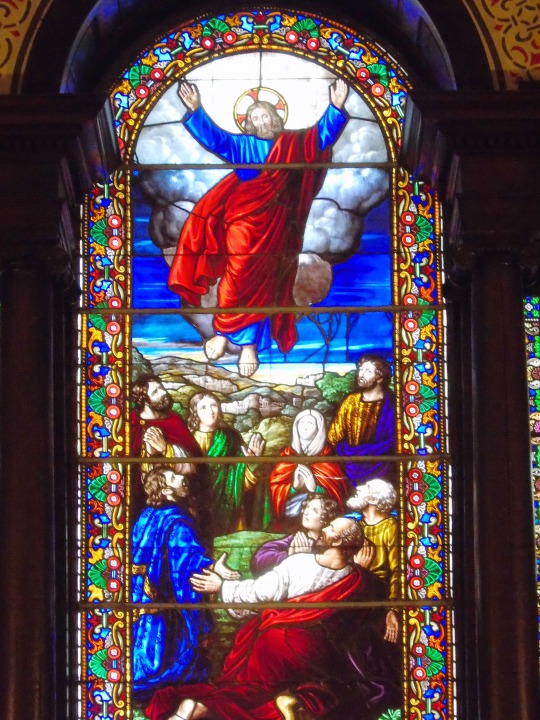
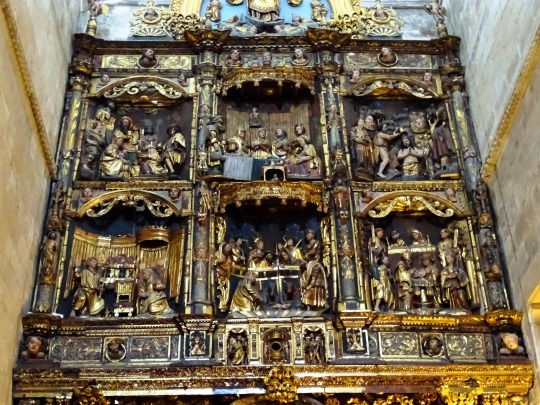
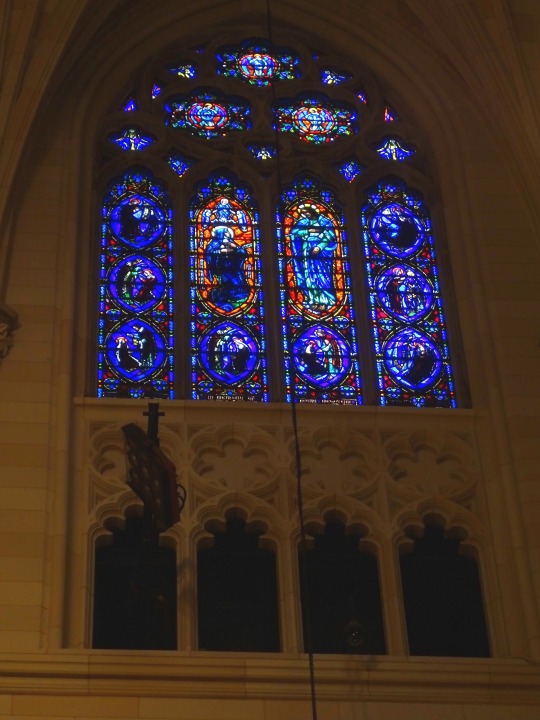
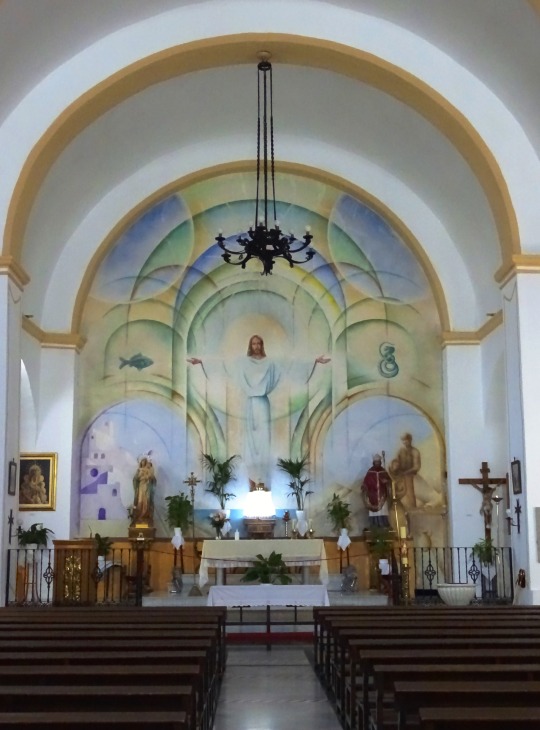
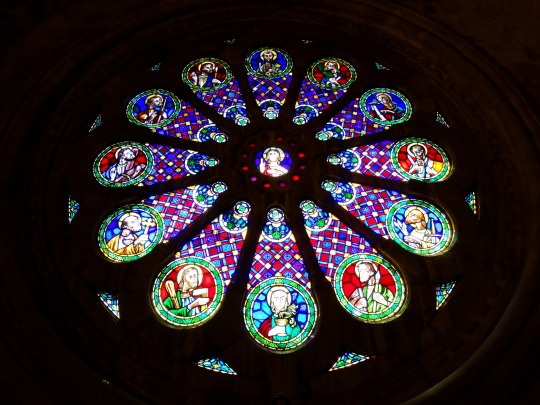
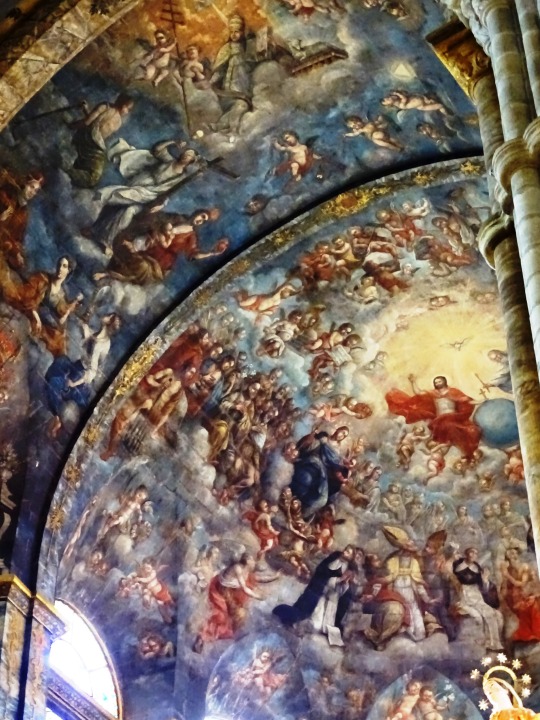
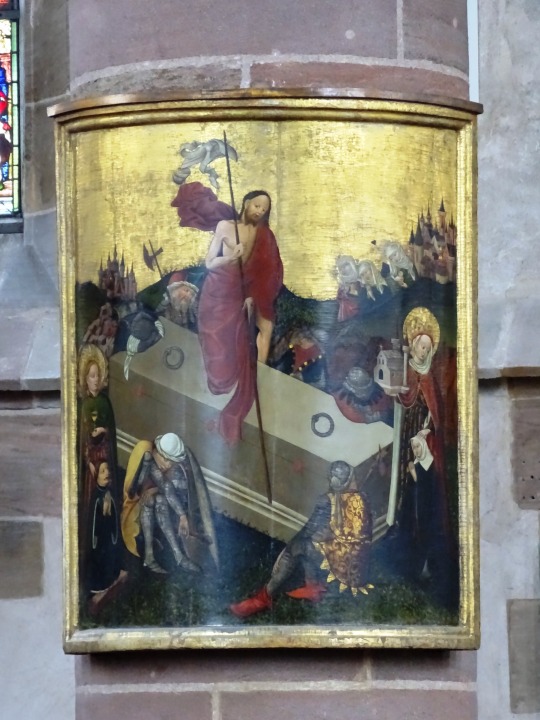
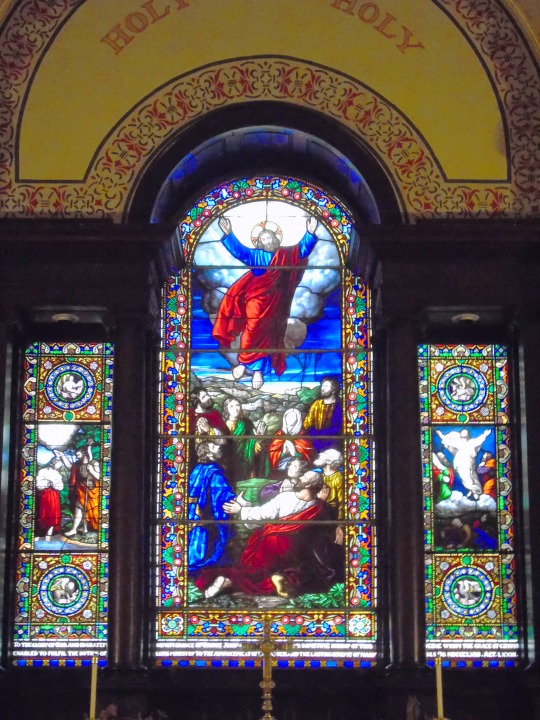
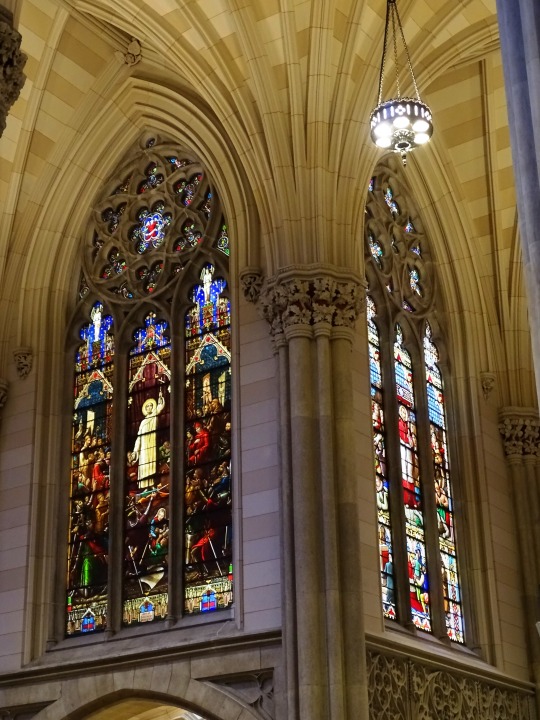
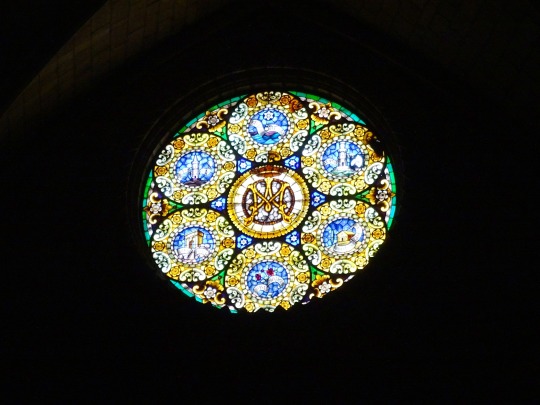
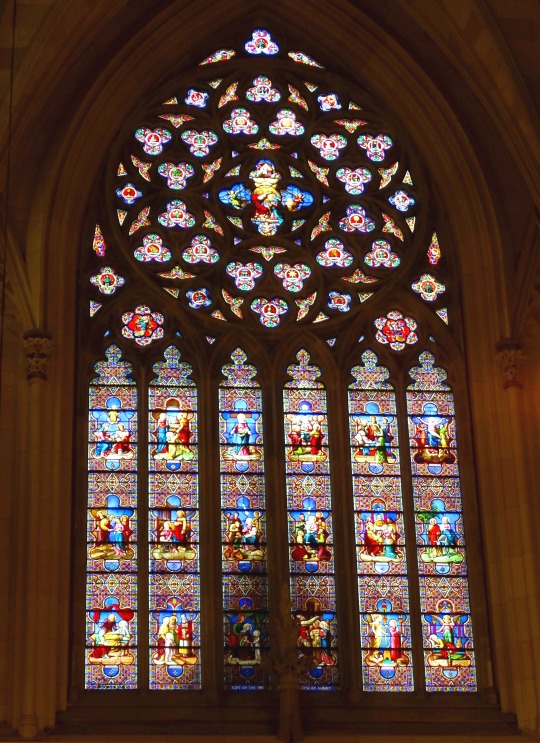
Ascension Day
We commemorate Jesus Christ’s ascension into heaven (as per Christian belief) by celebrating Ascension Day, which occurs on the Thursday, which is 40 (or 39) days after Easter. This year, it will take place on May 9. Known by multiple names — The Feast of the Ascension, The Ascension of Jesus, Ascension Thursday, Holy Thursday, or Solemnity of the Ascension of the Lord — this is a Christian holiday that doubles as a public holiday in many countries like Austria, Belgium, Denmark, Germany, France, Switzerland and more.
History of Ascension Day
One of the earliest Christian festivals, Ascension Day marks the end of the Easter season. This event is celebrated primarily by Catholics and Anglican Christians; most Protestant churches do not follow this tradition anymore. The date, too, differs in different geographic locations. Western Churches prefer to use the Gregorian calendar for calculating this date, while many Eastern Orthodox Churches calculate this date according to the Julian calendar. As a result, their celebrations occur at a later date than the Western event.
As per the New Testament in the Bible, after Jesus Christ’s crucifixion on Good Friday, he was resurrected from the dead in three days, on the day we know as Easter Sunday. For 40 days after this, he stayed with his Apostles (the primary disciples of Christ) to instruct them on how to carry out his teachings. As the Bible says, at the end of day 40, Jesus Christ and his disciples went to Mount Olivet (or the Mount of Olives), near Jerusalem. After asking them to stay, Christ then ascended to heaven to take his seat at the right hand of God, under the gaze of his disciples. To Christians, the ascension signifies that Christ completed his work on Earth and allowed him to prepare a place for his followers in heaven.
Initially a part of Easter celebrations, this day was later separated from Easter, along with Pentecost. Celebration of Pentecost ends the cycle of Easter-related events in the Christian calendar.
Ascension Day timeline
68 A.D. The Tradition Begins
Ascension Day begins to be observed, albeit with two other holidays — Easter Sunday and Pentecost.
300 A.D. Ascension Day Develops As A Separate Tradition
A decree declares this celebration now must be observed separately — it is moved to 40 days after Easter.
385 A.D. First Written Evidence Appears
We see the very first piece of written evidence that the Ascension Day Feast is celebrated.
5th century Ascension Day Starts Appearing In Art
Christian art showcases this holiday.
6th century Art Begins To Reflect Different Versions
Syria develops a different version of the Ascension, which is later adopted by Byzantine art.
18th century Germany Celebrates Father's Day
Ascension Day coincides with Father's Day in Germany — they celebrate Jesus returning to the Holy Father.
19th century Germany Celebrates With Colourful Parades
To replicate the way the Apostles walked with Jesus, Christians begin to host colorful parades as a commemoration.
How To Observe Ascension Day
Go to church
Attend church processions
Listen to hymns
Learn how your local church celebrates this day. Take some time to attend a Mass or Christian church service. Clarify the details before you go, as these services differ based on whether the church is Protestant or Catholic.
Tradition says this holiday is observed by a three-day procession, then the feast itself, which includes a procession of torches and banners to symbolize Christ’s journey to the Mount of Olives and entry into heaven. While your local church might not have such grand festivities, find out if they are still carrying out a procession.
Listening to hymns is a traditional part of Ascension Day celebrations. A medley of these religious songs can have you humming along for days. Even popular artists have been known to hum a hymn or two over the years. Check out Carrie Underwood’s ‘Something In The Water,’ or U2’s ‘Where The Streets Have No Name,’ or even John Legend’s ‘Preach.’
Facts About Ascension Day
In Sweden, people go on early morning walks
The British celebrated by 'beating the willow'
Welsh people don’t work on this day
Portugal celebrates by keeping wheat in their houses
Indonesia has a public holiday on Ascension Day
Many people go out into the woods at 3 AM or 4 AM to hear the birds at sunrise, believing that hearing a cuckoo from the east or west brings them good luck — this activity is called ‘gökotta.’
In the olden days, as young boys were driven along the parish boundaries, they were beaten with willow branches to drive away evil.
It is more than a holiday celebration in Wales — Welsh people believe that it is unlucky to do any work on Ascension Day.
Traditionally, rural Portuguese households keep wheat in their homes throughout the coming year — this day is associated with peace and prosperity and, to them, wheat symbolizes prosperity.
Despite Christianity being a minor religion in Indonesia, Ascension Day is designated as a public holiday.
Why Ascension Day Is Important
It is an opportunity for reflection and to gain inner peace
We learn about Christian traditions
It helps us expand our cultural horizons
Instances, where we can simply sit, reflect, and learn the true meaning of peace, are rare in our busy worlds. This is why we recommend holding onto such chances with both hands. Ascension Day church services center around this theme. If you are not a religious or church person, simply take a moment to sit by yourself and reflect on your journey so far and how you would like to continue. There’s no better way to celebrate this day than by centering yourself and your thoughts.
Expanding our knowledge is good for us. Plus, learning about Ascension Day not only helps us expand our store of general knowledge, but also inspires us to observe some of the traditions.
Such traditions have been prevalent for a long time, and have taken on varying degrees of importance around the world. Even festivities change as per the customs of a certain region. Learning more about these traditions changes our views of cultures and gives us extended knowledge of people from other nations.
Source
#Mojácar Pueblo#Church of Santa Maria#Lisbon Cathedral#Lisbona#interior#stained glass window#Ascension Day#Auffahrt#long weekend#9 May 2024#39 days after Easter#Saint Mary's Cathedral#Lugo Cathedral#Spain#Portugal#Holy Trinity Anglican Cathedral#Québec#Quebec City#Canada#Germany#Stadtpfarrkirche Unserer Lieben Frau#Nuremberg#Nürnberg#Solsona Cathedral#St. Patrick's Cathedral#Manhattan#New York City#USA#architecture#original photography
3 notes
·
View notes
Text
Solar powered saivior

I used ash to create the particles. The picture is taken outside a sunny day. The sun is lighting the ash and subjects from behind.
#lego#legophotography#legominifigures#toyphotography#minifigures#legoart#ascension#ascension day#saviour
65 notes
·
View notes
Text
Sunday Thoughts (1): Ascension Day
Ascension Day: All Power in His Hand - Notes on Acts 1: 9 - 11

Aerial View of the Mount of Olives/Jerusalem * Picture: Andrew Shiva [CC BY-SA 3.0 (http://creativecommons.org/licenses/by-sa/3.0) oder Attribution], via Wikimedia Commons
The following Notes on Acenscion Day are based on verses from the 1st chapter of the Acts of the Apostles, which we want to consider in their context:
"After he said this, he was taken up before their very eyes, and a cloud hid him from their sight. They were looking intently up into the sky as he was going, when suddenly two men dressed in white stood beside them. “Men of Galilee,” they said, “why do you stand here looking into the sky? This same Jesus, who has been taken from you into heaven, will come back in the same way you have seen him go into heaven.”
(Acts 1: 9 – 11 NIV)

The background of Acts 1: 9 - 11
The name "Acts" for this book of the New Testament goes back to the preface of an edition of Luke's Gospel, which is dated to the time of 150 - 180 AD. In this preface, directed against the heresy of Marcion, we find the designation "Πράξεις Ἀποστόλων" ("Práxeis Apostólōn"), i.e. the "Acts of the Apostles", for the first time.
Some commentators consider this title inappropriate, since the book essentially focuses on the deeds of the apostles Peter and Paul, but hardly reports anything about the deeds of the other apostles. For this reason, some commentators see this book more as a report on the spread of the Gospel than as a detailed account of the deeds of the apostles. Another reason for this view is the position the Holy Spirit occupies in this book. While the main person of the Gospels is clearly Jesus Christ, the Son of God, the Acts of the Apostles emphasises the work of the person of the Holy Spirit as the representative of Christ on this earth.
The author of this book is Luke, the well-known physician, co-worker and frequent companion of the Apostle Paul, from whom we also got a Gospel. According to commentators, there are two reasons for his authorship:
Firstly, there is the so-called "inner evidential power". It is found, among other things, in the accounts written in the first person plural, which makes it clear that these passages were written by a close associate of the Apostle Paul (cf. Acts 16:10 - 40; Acts 20:5 - Acts 21:18; Acts 27:1 - Acts 28:16). Moreover, the author of Acts introduces this book with an interesting note:
"In my former book, Theophilus, I wrote about all that Jesus began to do and to teach until the day he was taken up to heaven, after giving instructions through the Holy Spirit to the apostles he had chosen."
(Acts 1: 1 – 2 NIV)
This statement coincides with Luke 1, 1 - 4 where we read:
"Many have undertaken to draw up an account of the things that have been surely believed among us, just as they were handed down to us by those who from the first were eyewitnesses and servants of the word. With this in mind, since I myself have carefully investigated everything from the beginning, I too decided to write an orderly account for you, most excellent Theophilus, so that you may know the certainty of the things you have been taught."
(Luke 1 : 1 – 4 NIV)
The Gospel of Luke and the Acts of the Apostles are thus both addressed to the same addressee - a man named Theophilus. The emphasis on the resurrection of Jesus Christ and His teaching activity among the apostles, which lasted over 40 days (Acts 1:1 f.), also speaks for the fact that the author of both books was the same. For both are also mentioned in Luke 24:1 ff. According to Erich Mauerhofer, an analysis of "vocabulary, linguistic style, theological thought processes and the prologue of Acts" make it clear "that the author of Acts is identical with the author of the Gospel of Luke"¹.
I have already commented in detail on the person of Luke in the article "Background 15: The Gospel of Luke (Part 1)".
Concerning the Acts of the Apostles, I would like to add that Friedrich A. G. Tholuck² has pointed out that in the Roman Empire there were slaves who were instructed in certain professions - e.g. also in the profession of a doctor - and who were later set free. Tholuck also writes that from the time of Emperor Augustus onwards, the majority of Roman physicians were of Greek origin. There are commentators who conclude from this that the "Theophilus" mentioned in Luke's Gospel as well as in the Acts of the Apostles could possibly have been a former master of Luke, whom the "beloved physician" (Colossians 4:14), who had now been released and had come to faith in Jesus Christ, wanted to acquaint with the Gospel of the glory and grace of God.
In addition to the "inner evidence" that speaks for Luke as the author of the Acts of the Apostles, there is also extra-biblical evidence for this. In particular, the writings of the so-called early church fathers testify to Luke's authorship, e.g. Irenaeus of Lyons (ca. 140 AD - 202 AD), Eusebius of Caesarea (260/264 AD - 339/39 AD). AD - 339/340 AD), Clement of Alexandria (ca. 150 AD - 215 AD), Tertullian (between 150 AD and 220 AD) and Origines (ca. 185 AD - 254 AD).
As far as the time of composition of the Acts of the Apostles is concerned, conservative commentators date it to the early 60s (62/63 AD) of the first Christian century. In favour of this period of composition is the fact that Luke does not mention important events (such as the great fire of Rome and the subsequent persecution of Christians by Nero in 64 AD, the execution of Paul around 67/68 AD and the destruction of the temple in Jerusalem in 70 AD). Accordingly, the accounts in Acts cover a period of about 30 years, beginning with the Ascension of the Lord around AD 32/33 (Acts 1:1 f.) and ending with the two-year house arrest of the Apostle Paul in Rome in AD 62 (Acts 28:30-31).
While the time of origin of the Acts of the Apostles can thus be narrowed down quite clearly, the place where the book was written is not known. It is possible that Luke collected the individual accounts over a period of years and finally wrote them down while the apostle was under house arrest in Rome³.
As I have already explained above, some commentators consider the title "Acts of the Apostles" to be inappropriate, since the book essentially focuses on the deeds of the apostles Peter and Paul, but hardly reports anything about the deeds of the other apostles. For this reason, such commentators see in this book rather an account of the spread of the Gospel through the activity of the Holy Spirit, the third person of the Godhead. This becomes especially clear in Acts 1:8. There the risen Lord Jesus Christ promises:
"But you will receive power when the Holy Spirit comes on you; and you will be my witnesses in Jerusalem, and in all Judea and Samaria, and to the ends of the earth."
(Acts 1:8 NIV)
This promise, which is the core message of the Acts of the Apostles, began to be fulfilled on the day of Pentecost in Jerusalem - all believers and also all those who came to faith in Jesus Christ on that day received the Holy Spirit and with it the power to be witnesses for the Lord Jesus Christ (Acts 2:1 ff).
In the following we see how this promise is fulfilled exactly according to the words of the Lord: After the first fully empowered proclamation of the Gospel in Jerusalem (Acts 2: 14 - 41; about 3,000 believers, whose number has grown to 5,000 - men - in Acts 4: 4, and has become so large that it can only be called "the multitude" in Acts 6: 2), the message of the Gospel also comes to Judea and Samaria after the stoning of Stephen (Acts 6: 8 ff.) and the subsequent persecution of the believers:
"On that day a great persecution broke out against the church in Jerusalem, and all except the apostles were scattered throughout Judea and Samaria."
(Acts 8:1 NIV)
And from Acts 10:1 f., begins - with the city of Caesarea Maritima as the first station -, the preaching of the Gospel to all nations of the earth. In this context, it must be noted that Acts does not have a "conclusion" in the sense of a completed documentation. For the spread of the Gospel of Jesus Christ, of which Acts tells us the beginning, continues to this day.
On this background, Acts conveys four decisive lessons to us:
1. The prophetic promise of the Lord Jesus Christ from Acts 1:8 has been fulfilled, it is fulfilled to this day ("open end") and thus confirms the truthfulness of the Word of God.
2. God's plan and work unfold in the midst of human history (historicity), which is a history of peoples/nations (Genesis 10:1 ff.; Matthew 28:16-20).
3. Starting from Jerusalem, God's plan and activity unfold geographically to "the ends of the earth."4
4. While the Gospel of Luke makes it clear that the person or message of Jesus Christ overcomes all differences of social and religious origin, the Acts of the Apostles shows that the boundaries of ethnic and national origin are also overcome by the Son of God or His Gospel. Luke's Gospel and the Acts of the Apostles written by him thus show "the vertical and horizontal universality of the Gospel "5 and thus underline the claim of Jesus Christ to be the Saviour of the whole world (John 3:16; Galatians 3:28).

Notes on Acts 1: 9 - 11
* "After he said this, he was taken up before their very eyes, and a cloud hid him from their sight." - Acts 1:9 (NIV) - As we know from Jesus' farewell discourses (especially John 14: 16 + 26; John 15: 26; John 16: 7), His return to God the Father was the prerequisite for the Holy Spirit to come. When Luke writes here that the apostles saw the Lord being lifted up by them, then he emphasizes the fact that the apostles were real eyewitnesses of this event. He also makes it clear that this departure of the Lord was an event that we have to distinguish from other experiences of the disciples, e.g. in Luke 24:31, where it is said that the Lord became invisible before their eyes.
Many commentators see in the reference to the cloud a reference to the Shekinah, the symbol of God's presence, already mentioned in Exodus 40:34 (cf. Nehemiah 9:19). Also during the time of Jesus' life and ministry on this earth, the cloud of God's presence had repeatedly become visible (cf. Matthew 3:17; Matthew 17:5; Mark 1:11; Mark 9:7; 2 Peter 1:17). The disciples, who remembered the appearance of the Shekinah on the occasions mentioned, had to understand this last appearance of the Shekinah as divine recognition of the entire work of their Lord and Master. At the same time, the appearance of the cloud of God had to remind the disciples, who were rooted in the Old Testament, of Daniel 7:13-14, where the prophet sees "the Son of Man", i.e. the Messiah-Redeemer promised by God, being brought to God. The Son of God had finished His work on this earth. God, the Father, had acknowledged this work and now the Son returned to His Father to take His rightful place at the right hand of God (Mark 16:19). Thus it had been prophetically announced (cf. Psalm 110:1) and thus the Son of God Himself had also announced it (Luke 22:69). We will discuss the far-reaching consequences of this event later.
* "They were looking intently up into the sky as he was going, when suddenly two men dressed in white stood beside them. 'Men of Galilee,' they said, 'why do you stand here looking into the sky? This same Jesus, who has been taken from you into heaven, will come back in the same way you have seen him go into heaven.'" - Acts 1:10 – 11 (NIV) - The Greek word translated "intently" in most of our Bible translations is "ἀτενίζω" ("atenizo"). It means to look "intently" at something, to "fix" one's gaze on something or to "fix" something with one's gaze. Luke uses this word in twelve places in his writings (Luke 4:20; Luke 22:56; Acts 1:10; Acts 3:4 + 12; Acts 6:15; Acts 7:55; Acts 10:4; Acts 11:16; Acts 13:9; Acts 14:9, Acts 23:1). With each of these passages Luke emphasises that what is reported really happened in this way.
In five places in this first chapter Luke speaks of the Lord going into heaven. He uses different words. For example
in verse 2, "he was taken up",
in verse 9, "he was lifted up."
in verse 11, "he was taken up into heaven" or "he ascended into heaven", and
in verse 22, that "he was taken up from us".
Luke thus makes it very emphatically clear that the Lord Jesus Christ is now in heaven. We will discuss this important fact and what it means for us in detail later. At this point we only want to state that our Lord continues His ministry from heaven. For this purpose He makes use of believers whom He equips with the power of the Holy Spirit.
Then Luke speaks of "two men in white garments". The reference to their clothing identifies them as angels, who already appeared in this way to the disciples in earlier times (cf. John 20:12; Luke 24:1-7). Angels are mentioned at the birth and resurrection of Jesus Christ. But during His life and ministry they never appear to convey messages from God. This is only logical. For according to Psalm 103:20, angels are "doers of His word, obedient to the voice of His word". As such, they do not proclaim their own opinions or messages, but rather reproduce what they have heard from God or what God has instructed them to do. Since God spoke "through the Son" during the time of Christ's life and ministry on this earth (Hebrews 1:1-2), the delivery of divine messages through angels was neither necessary nor indicated. This is also true today, as God speaks to us through His written Word.
The eleven remaining disciples were literally all from Galilee, whereas Judas Iscariot (= Judas from Kerioth; cf. Joshua 15, 25), who was no longer with them (cf. Matthew 27, 3 - 5), was the only disciple from Judea.
There are two things that these angels now announce (Acts 1, 11 NIV):
"'Men of Galilee,' they said, 'why do you stand here looking into the sky? This same Jesus, who has been taken from you into heaven, will come back in the same way you have seen him go into heaven.'"
1. The Lord Jesus Christ they had known had ascended - personally and bodily - into heaven and
2. this same Jesus Christ would return to this earth "just as" they had seen him ascend - peronally and bodily.
The first statement is clear: Our Lord Jesus Christ will return just as personally and bodily as He ascended into heaven. This statement may seem superfluous, but it is an important distinguishing feature from those false Christs whose appearance was announced by our Lord Himself (cf. Matthew 24:24 - 26!; Mark 13:22). In the past, people have repeatedly appeared who claimed that they were the Christ who had come again "in the spirit" or "in the body of another person". Others proclaimed that Christ had come again "invisibly", etc., etc. They were all false prophets whose "proclamation" could not stand the test of biblical criteria.
The important meaning of the second statement becomes clear when we consider where this event took place. Acts 1:12 (NIV) gives us the decisive clue:
"Then the apostles returned to Jerusalem from the hill called the Mount of Olives, a Sabbath day’s walk from the city."
So the ascension event took place on the Mount of Olives, which is close to Jerusalem. When Luke in Luke 24:51-52 connects the ascension event with Bethany, it does not contradict the statement in Acts 1:12, since this place was on the east side of the Mount of Olives. Why is this statement so important? Because it gives us information about which of the still pending comings of Christ the angels are announcing here. As I have already explained in my article "Distinction: The two phases of the second coming of Christ" with the help of 12 distinguishable points, the Second coming of Christ6 will take place in two phases: The first phase will be the coming of Jesus Christ to rapture believers, the second phase will be the coming of Jesus Christ in power and glory. If the Scriptures distinguish something so clearly, then we too must distinguish it, for we are bound to rightly divide the word of truth:
"Do your best to present yourself to God as one approved, a worker who does not need to be ashamed and who correctly handles the word of truth."
(2 Timothy 2:15 NIV)
So when we learn from Acts 1: 11 - 12 that the Lord Jesus Christ personally and bodily ascended to heaven from the Mount of Olives with the cloud of God's presence and when the angels announce that He will return "just the same", then we are not talking here about the coming of Christ for the rapture of the faithful, but about the coming of Christ for judgement on this world (cf. Zechariah 14:4; Matthew 24:30; Matthew 26:64; Mark 13:26; Mark 14:62; Luke 21:27; Luke 24:50-51; Revelation 1:7). And this second Coming of Christ is promised in Zechariah 14:4 (NIV) as followes:
“On that day his feet will stand on the Mount of Olives, east of Jerusalem, and the Mount of Olives will be split in two from east to west, forming a great valley, with half of the mountain moving north and half moving south.“
So ist was not by accident, that the Ascension happend at exactly this place.
As we know from Luke 24, 51 - 52, the disciples were filled with great joy after the Lord's departure. Some commentators give the promise of Christ's return as the reason for their joy. However, since the angels announce to the disciples - as we have seen - in connection with the Ascension the 2nd phase of the second coming of Christ, that phase which is not connected with the Rapture of the faithful but with the judgement of this world, I do not believe that this conclusion is correct. For it is not the coming of Christ to judgement but the coming of Christ to the Rapture that is called the "blessed hope" of believers (Titus 2:13). Therefore, I believe that the disciples' joy at this time had another reason. I believe that their joy is primarily to be found in the significance that the ascension of Christ has for them and for all Christians (!).

The meaning of the Ascension of Christ for the believer
In order to properly understand the profound significance of Christ's ascension for the believer, and to apply it to our life of faith, we must consider the entire testimony of Scripture on this subject, of which Acts 1:9 - 11 testifies to us the historical background:
"This Jesus ...." - The Lord Jesus Christ was and is the Son of God from eternity (cf. John 1:18). He came to this earth and became man. Holy Scripture calls this process the "Incarnation" (1 John 4:2-3; John 1:14; Philippians 2:5-11; Colossians 1:15-20). Theologically we speak of the "Incarnation of God". However, at no time did the Son of God give up His divinity (Colossians 2:9). The Holy Scriptures testify to the truth that the Lord Jesus Christ was and is fully God and fully man. During His life on this earth He was fully God (Colossians 1:19) and fully man (1 John 4:2-3). He "made Himself nothing, and took upon Him the form of a servant, being made in the likeness of men, and found in the likeness of men" (Philippians 2:7). I.e. He took on the likeness of a man, but with one decisive difference: sin never dwelt in Him (Hebrews 4:15). Even now that He is in heaven, He is and remains fully God (Colossians 2:9) and fully man (cf. 1 Timothy 2:5; Hebrews 4:14-16). For when the Lord Jesus Christ rose from the dead, He did not rise with a "spiritual body" or an "astral body", as some false teachings claim, but with a resurrection body. He clearly testified to this fact in His meeting with His disciples (cf. Luke 24:39; John 20:19 + 27; 1 John 1:1). With this resurrection body the Lord Jesus Christ ascended into heaven. That is why Stephen sees Him standing there at the right hand of God as the Son of Man (cf. Acts 7: 55 - 56). So it is a perfect, glorified man who now sits at the right hand of God. This is exactly how the Lord Jesus Christ had announced it early on:
"Then what if you see the Son of Man ascend to where he was before!"
(John 6:62 NIV)
After His ascension, the Lord Jesus Christ was glorified (Hebrews 2:9) and now possesses a glorified body, a "body of glory" (Philippians 3:21). The fact that the Lord Jesus Christ, as perfect God and perfect man, is now at the right hand of God in heaven is an exceedingly important and wonderful truth to anyone who rightly understands it:
I. He entered there as "our forerunner" (Hebrews 6:20). Never before has a human been in that place. The fact that He is now there as a glorified human is the guarantee for us that He will fulfil His promise and take us to Himself (John 14:1 - 4; Philippians 3:20 - 21), i.e. that we too will reach that place.
II. Moreover, the Lord Jesus Christ is now working for us there in heaven as our High Priest (Hebrews 4:14; Hebrews 9:24; Hebrews 7:25). Through Him, our heavenly administrator and intercessor, we experience salvation from daily afflictions and dangers. Through Him we draw near to God. Because He is there with the Father as a glorified human, we have a High Priest who understands us perfectly and to whom we can always take refuge in prayer with every request:
"Therefore, since we have a great high priest who has has gone through the heavens, Jesus the Son of God, let us hold firmly to the faith we profess. For we do not have a high priest who is unable to empathize with our weaknesses, but we have one who has been tempted in every way, just as we are—yet he did not sin. Let us then approach God’s throne of grace with confidence, so that we may receive mercy and find grace to help us in our time of need."
(Hebrews 4:14 - 16 NIV)
III. As a result of His ascension, the Lord Jesus Christ has sent us the Holy Spirit according to His promise. He is the pledge of our inheritance (Ephesians 1:14), which is kept for us in the heavens (1 Peter 1:4).
IV. The apostle Peter testifies to us concerning the risen and ascended Lord Jesus Christ:
"… who has gone into heaven and is at God’s right hand—with angels, authorities and powers in submission to him."
(1 Peter 3:22 NIV)
He is the Saviour who has redeemed us. He is the High Priest who now represents us and intercedes for us. He is the risen Lord, who will come back and take us to where He is now, so that we might be with Him in eternity (John 14: 1 – 3). He is the glorified and exalted Lord above all, to whom all powers and authorities are subject. Ascension means: All power is in His - our Lord and Saviour's - hand! What else should we be afraid of?
Footnotes:
¹= Prof. Dr. Erich Mauerhofer: "Einleitung in die Schriften des Neuen Testaments", Gesamtausgabe, 3rd edition 2004, Verlag für Theologie und Religionswissenschaft Nürnberg & reformatorischer Verlag Beese, Hamburg, page 256.
²= Friedrich A. G. Tholuck: "Die Glaubwürdigkeit der evangelischen Geschichte, zugleich eine Kritik des Lebens Jesu von Strauß, für theologische und nicht theologische Leser dargestellt", Verlag Friedrich Perthes, Hamburg 1837, page 148 ff.
³= For the mention in the Church Fathers mentioned and for the dating see Prof. Dr. Erich Mauerhofer, op. cit., pp. 254 - 255 and pp. 272 - 273.
4= Some have concluded from the use of the Greek term "ἔσχατος" ("eschatos") in Acts 1: 8 ("καὶ ἕως ἐσχάτου τῆς γῆς") that the "end of the world", i.e. a temporal closing point is announced here. However, this is not correct, since the whole verse makes a statement with a clearly geographical direction and "γῆ" ("ge") in Acts 1: 8 clearly means the (whole) earth/ground, whereas in Matthew 28:20 ("ἕως τῆς συντελείας τοῦ αἰῶνος") "αἰών" ("aion") marks the "end of the world" as a temporal end. Cf. Thayer, Joseph Henry: 'Thayer's Greek-English Lexicon of the New Testament", New York: Harper & Brothers, 1889, pp. 253 - 254, notes on "ἔσχατος" ("eschatos"). In addition, Acts 1: 8 takes up the commission of God - not fulfilled by Israel - from Isaiah 49: 1 - 6, which was also clearly about carrying the knowledge of God and His will to "the ends of the earth" (cf. LUTH'84), see on this: Stephen S. Liggins: "Many Convincing Proofs: Persuasive phenomena associated with gospel proclamation in Acts", Verlag Walter de Gruyter, Berlin/Boston 2016, page 236.
5= cf. Dr. Ben Witherington III, "The Acts of the Apostles - A Socio-Rhetorical Commentary", William B. Erdmanns Company, Grand Rapids/Michigan; Paternoster Press, Carlisle; 1998, page 69 f.
6= We basically distinguish two comings of Christ: The first coming of Christ took place about 2000 years ago in Bethlehem. God's Son became man and accomplished the work of redemption on the cross of Golgotha, as the Old Testament prophets had announced. This first coming of Christ, which ended with His Ascension (Acts 1:1 f.), is marked by His suffering. His second coming, which includes the Rapture of the faithful (1 Thessalonians 4:13-18) and His coming to judge this world (Matthew 24:30), will be characterised by His glory (cf. 1 Peter 1:11).
2 notes
·
View notes
Text
The Holy Spirit
Our Reader Christine preached this sermon on 12 May 2024 – the Sunday between Ascension Day and Pentecost. Here it is for you to meditate on again:
Today is the Sunday after Ascension Day, and I felt that Acts 1:15-17 & 21-26 which is actually sometime after Pentecost so it’s before we actually celebrate that special day next week. However, I feel this particular passage explains a bit about how…

View On WordPress
#Ascension#Ascension Day#Barnabus#Christ#Cornelius#Easter#faith#flame#God#Holy Dove#Holy Fire#Holy Ghost#Holy Spirit#hope#Jesus#love#Pentecost#trust#truth#Word
0 notes
Text
Texas Skyward Soiree: Ascension Day’s Dance of Faith, Fun, and Celestial Celebrations
Texas Skyward Soiree: Ascension Day's divine dance in the Lone Star State! 🤠✨ #TexanAscensionJoy #HeavenlyHoedown #FaithTakesFlight
Gather ’round, y’all! It’s time to set the Texas sky ablaze with the celestial revelry of Ascension Day. Forget gravity; we’re talking about faith taking flight, Texas-style. So, hitch a ride on the Lone Star express as we explore the soaring celebration that is Ascension Day in the heart of Texas.
Overview
Ascension Day, a Christian feast commemorating Jesus Christ’s ascension into Heaven,…
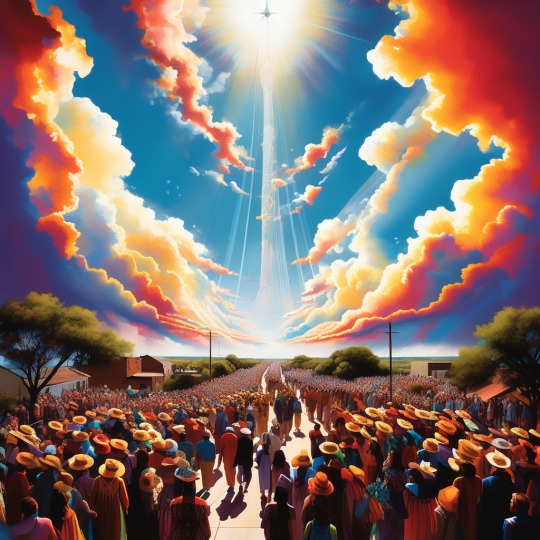
View On WordPress
0 notes
Text
Ascension Day Double Bill
Happy Ascension Day! Here is a pair of videos to help you keep the feast.
“Opulent Ascension,” an installation by Sean Scully in San Giorgio Maggiore (Venice Biennale, 2019).
Inspired by Jacob’s dream of a ladder to heaven (Genesis 28:12), Scully’s stack of colored felt slabs rises more than ten meters toward the luminous dome of San Giorgio Maggiore, Palladio’s splendid Renaissance church in Venice. Amid the subdued grays and whites of the interior, the miraculous…

View On WordPress
#Acts 1:9#Ascension Day#Ascension of Christ#Genesis 28:12#Jacob&039;s Dream#Palladio#Pandemic#San Giorgio Maggiore#Sean Scully#Venice
0 notes
Text
Ascension
We saw his light break through the cloud of glory
Whilst we were rooted still in time and place
As earth became a part of Heaven’s story
And heaven opened to his human face.
We saw him go and yet we were not parted
He took us with him to the heart of things
The heart that broke for all the broken-hearted
Is whole and Heaven-centred now, and sings,
Sings in the strength that rises out of weakness,
Sings through the clouds that veil him from our sight,
Whilst we our selves become his clouds of witness
And sing the waning darkness into light,
His light in us, and ours in him concealed,
Which all creation waits to see revealed .
Malcolm Guite
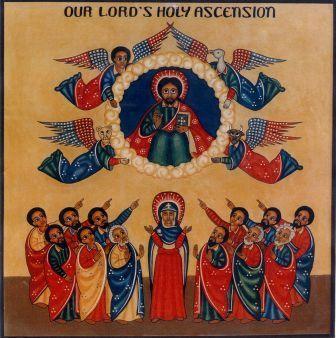
0 notes
Text
L'amore non è gentile - Love is not kind
L’amore non è gentile.Quando sottolinea chi sono: un mancante.È per questo che mi metto in cammino: per elemosinare quella felicità vera che, da solo, non riesco nemmeno ad immaginare. Mancante è il pezzo vuoto del mio cuore, perché mi nascondo e tradisco.Sono undici e non dodici.
Continue reading Untitled

View On WordPress
#amore#Ascension Day#ascensione#blog#domenica#I never give up#L&039;amore non è gentile#life#love#Love is not kind#myself#Non mollo#oggi#pensieri#roberto perodi#Sunday#thoughts#today#today&039;s gospel#vita
6 notes
·
View notes

